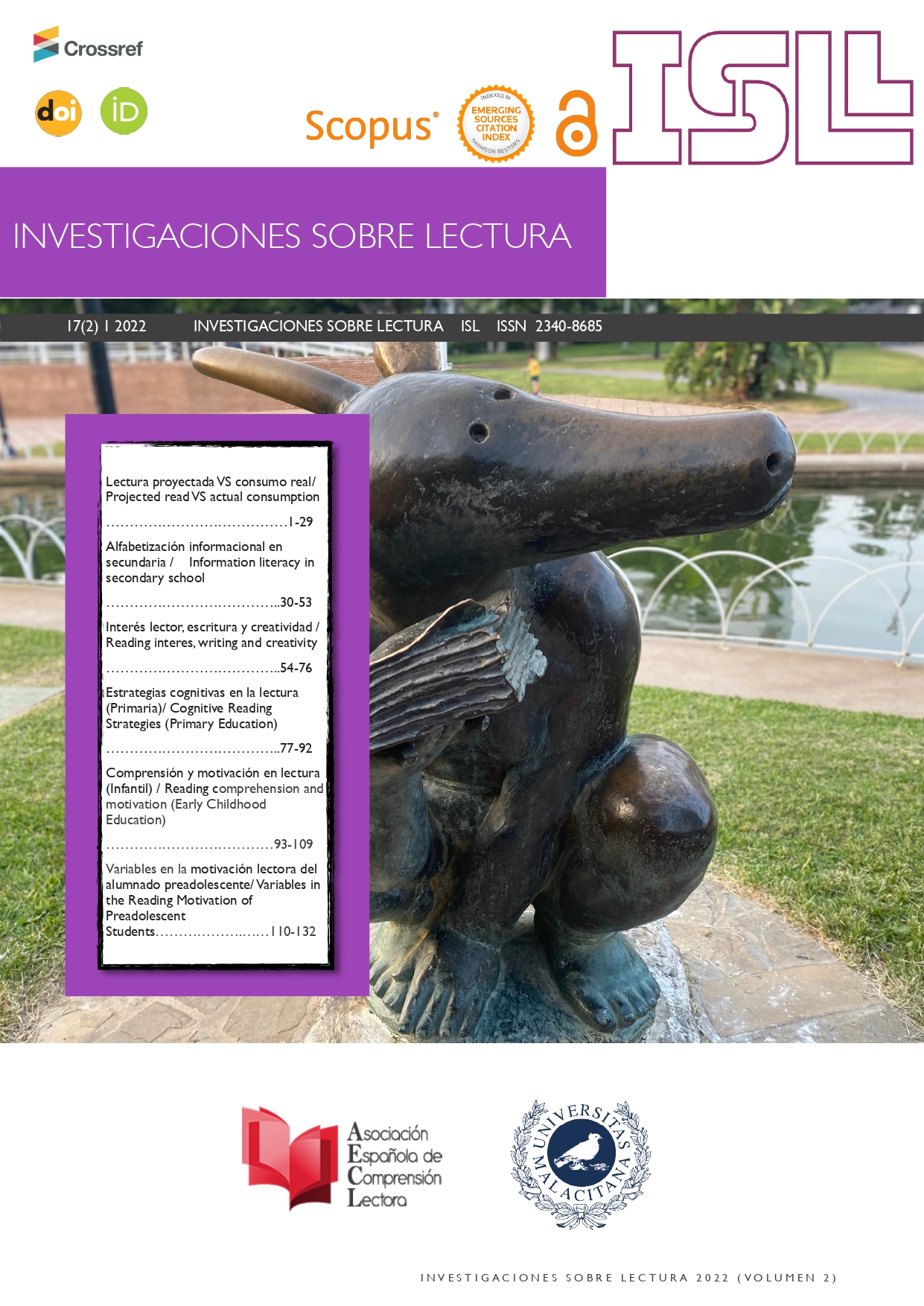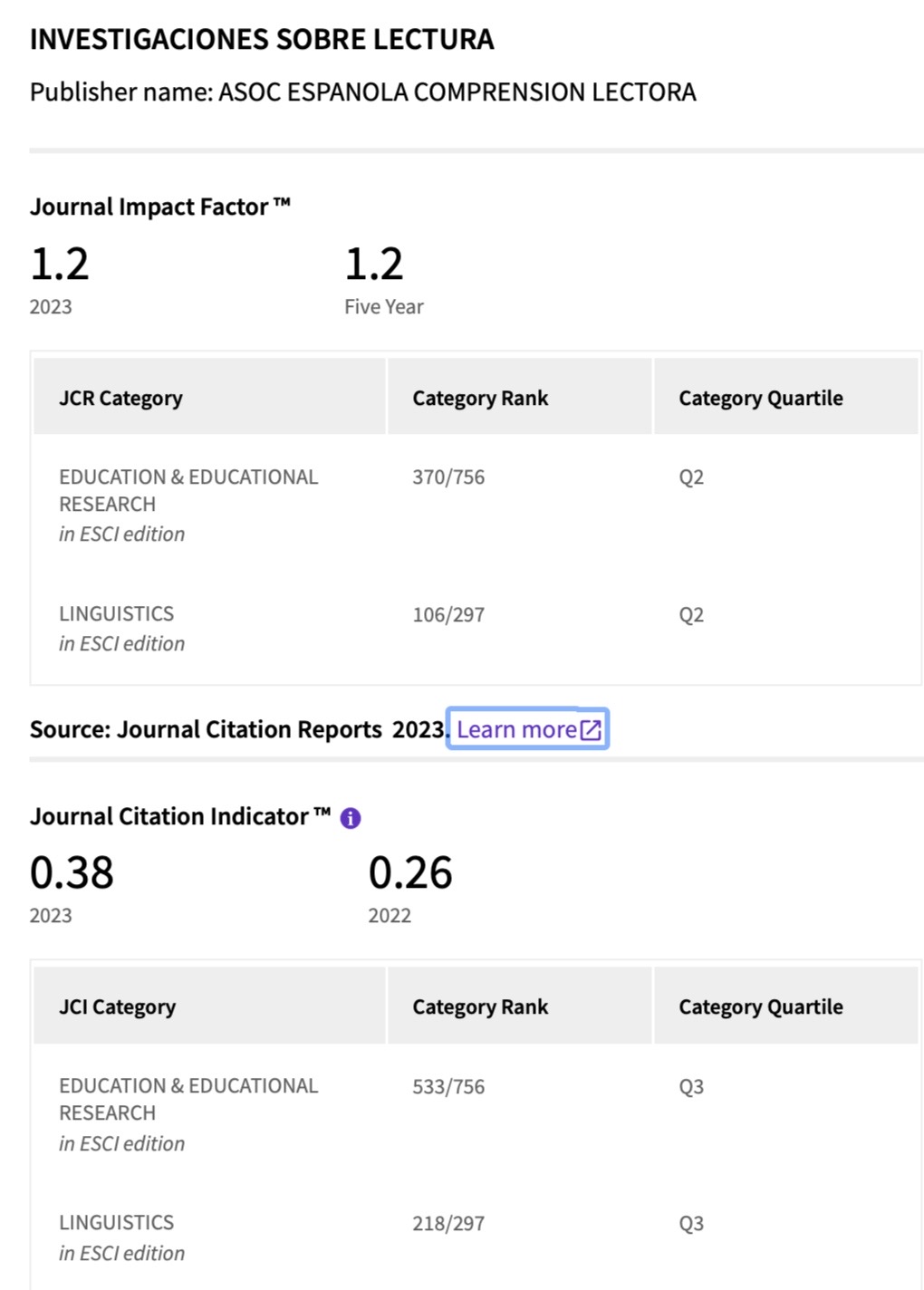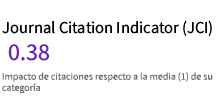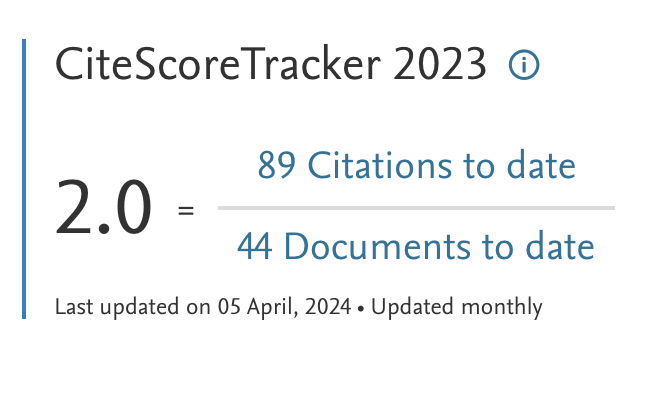Understanding and reading motivation in early childhood education through light
DOI:
https://doi.org/10.24310/isl.vi18.14399Keywords:
Early childhood education, reading habit, children´s literature, reading comprehension, motivationAbstract
The Early Childhood Education stage is the basis of the training of the minor, especially in the literacy field. The use of innovative resources in the classroom that motivate and arouse reading interest, as a previous step to a habit that must be acquired throughout Primary, becomes one of the tasks of the teacher who values the importance of reading in the personal and academic development of his students. For this reason, this workshop aims to help the understanding of literary texts to arouse interest and reader motivation through light and manipulative materials, thus favoring the pleasure of reading. The workshop consists of the narration of stories of children´s literature using the old overhead projectors used as light tables. The participants of this study were 326 students from four to six years (51.8% were children) of Early Education from different schools in the Region of Murcia. A demographic scale, the Mierisuo-Storm and Soinnien scale (2012) and an observational record were administered as instruments for the collection of information. The results show that 99% of the students not only understood the argument of the text, but also were able to carry out the subsequent activities using the resources offered; the same percentage showed interest in reading new texts. As a conclusion to this project, we can affirm that the implementation of new resources in the classroom focused on the understanding of the texts helps to awaken in the child the motivation and necessary interest to generate the reading habit.
Downloads
Metrics
References
Ajello, A. M. (2003). La motivación para aprender. En C. Pontecorvo (Coord.). Manual de psicología de la educación (pp. 251-271). Popular.
Artola, T., Sastre, S. y Alvarado, J.M. (2018). Evaluación de las actitudes e intereses hacia la lectura: validación de un instrumento para lectores principiantes. European Journal of Education and Psychology, 11 (2), 141-157. https://doi.org/10.30552/ejep.v11i2.227
Brooks. (2014). El rol del maestro. México: Instituto Tecnológico y de Estudios Superiores de Monterrey. http://www.cca.org.mx/ profesores/cursos/cep21/modulo_2/ rol_maestro.htm
Carballo, A. y Portero, M. (2018). 10 ideas clave. Neurociencia y educación. Aportaciones para el aula. GRAO.
Clark, C. y Rumbold, K. (2006). Reading for Pleasure: a research overview. National Literacy Trust.
Colomer, T. (2010). La literatura infantil: una minoría dentro de la literatura. La fuerza de las minorías. En Fesefeldt, H., Actas del 32º Congreso internacional de IBBY. Organización Española pare el Libro Infantil y Juvenil.
Decreto 254/2008, de 1 de agosto, por el que se establece el currículo del Segundo Ciclo de Educación Infantil en la Comunidad Autónoma de la Región de Murcia. BORM, 182, 24960- 24973.
Delgado, M. D., Méndez, I. y Ruiz, C. (2020). Motivación hacia la lectura en el alumnado de Educación Infantil y Primaria. European Journal of Education and Psychology (13) 2, 177-186.
Delgado, M. D., Méndez, I. y Ruiz, C. (2020). Motivación, interés y placer lector en Educación Infantil. [Tesis Doctoral, Universidad de Murcia].
Frere, S. (1987). Caja de luz. Guía de actividades: Niveles I, II, III. American Printing House for the Blind: Kentucky.
García-Bacete, F.J. y Doménech, F. (1997). Motivación, aprendizaje y rendimiento escolar. Revista Electrónica de Motivación y Emoción, 1(0).
Gambrell, L. B., Palmer, B. M., Codling, R. M. y Mazzoni, S. A. (1996). Assessing motivation to read. The Reading Teacher, 49 (7), 518-533. https://doi.org/10.1598/RT.49.7.
Guerrero, P. y Caro, M.T. (2015). Didáctica de la Lengua y Educación Literaria. Educatio siglo XXI, 33(3).
Holden, J. (2004). Lectura creativa. Demos.
López, A., Jerez, I. y Encabo, E. (2016). La lectura, aspecto clave del desarrollo personal: sobre las nuevas alfabetizaciones. En Yubero, S. Caride, J.A., Larrañaga, E. y Pose, H. (coords.). Educación social y alfabetización lectora (29-45). Síntesis.
Mendoza, A. (2008). La educación literaria: bases para la formación de la competencia lecto-literaria. http://www.cervantesvirtual.com/nd/ark:/59851/bmcf19d9
Ministerio de Educación y Formación Profesional (2020). Datos y cifras. Curso escolar 2020/2021. Secretaría General Técnica. Subdirección General de Atención al Ciudadano, Documentación y Publicaciones.
Naranjo, M. L. (2009). Motivación: perspectivas teóricas y algunas consideraciones de su importancia en el ámbito educativo. Educación (33), 2, 153-170.
Navarro, M., Orellana, P., y Baldwin, P. (2018). Validación de la Escala de Motivación Lectora en estudiantes chilenos en Enseñanza Básica. PSYKHE, 27 (1), 1-17. https://doi.org/10.7764/psykhe.27.1.1078
Navarro, V., Joza, M.F. y García, V. (2017). Análisis de intereses lectores: una mirada al programa vinculación “Manabí crece leyendo”. Revista de Ciencias Humanísticas y Sociales (2)4, 68-84.
Nieto, J. (2011). El taller de motivación y fomento de la lectura en la Educación Primaria. Estudio de los casos en la provincia de Segovia. Colección de Becas de investigación Caja Segovia.
Niño, V. (2012). Competencias en la comunicación: hacia las prácticas del discurso. Biblioteca Nacional de Colombia.
Real Decreto 1630/2006, 29 de diciembre, por el que se establecen las enseñanzas mínimas del segundo ciclo de Educación Infantil. BOE, 4, 474 a 482, 4 de enero.
Sellan, M. E. (2017). Importancia de la motivación en el aprendizaje. Sinergias educativas, 2 (1). Grupo Compás.
Vicente-Yagüe, M.I. y González Romero, M. (2019). Análisis del panorama metodológico interdisciplinar en Educación Infantil para el fomento de la lectura. Revista Complutense de Educación, 30(2), 493-508. https://doi.org/10.5209/RCED.57738
Downloads
Published
How to Cite
Issue
Section
License
All contents published in Investigaciones sobre la Lectura are protected under the Creative Commons Attribution-NonCommercial-ShareAlike 4.0 International (CC BY-NC-SA 4.0) license. All about this license is available in the following link: <http://creativecommons.org/licenses/by-nc-sa/4.0>
Users can copy, use, redistribute, share and exhibit publicly as long as:
- The original source and authorship of the material are cited (Journal, Publisher and URL of the work).
- It is not used for comercial purposes.
- The existence of the license and its especifications are mentioned.
There are two sets of authors’ rights: moral and property rights. Moral rights are perpetual prerogatives, unrenounceable, not-transferable, unalienable, imprescriptible and inembargable. According to authors’ rights legislation, Investigaciones sobre la Lectura recognizes and respects authors moral rights, as well as the ownership of property rights, which will be transferred to University of Malaga in open access. The property rights are referred to the benefits that are gained by the use or the dissemination of works. Investigaciones sobre la Lectura is published in an open access form and it is exclusively licenced by any means for doing or authorising distribution, dissemination, reproduction, , adaptation, translation or arrangement of works.
Authors are responsable for obtaining the necessary permission to use copyrighted images.










31.png)








